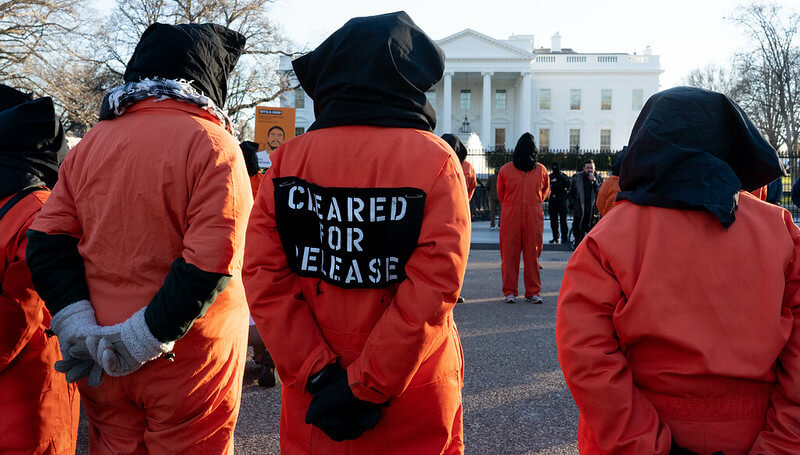22 years on and Guantanamo Bay still stands as a blight on the world’s conscience


London - Today marks the 22nd anniversary since the opening of Guantanamo Bay detention facility. It stands as a stark reminder of the enduring impact of the American-led War on Terror and the 22 years that have etched tales of torture, rendition and grief.
At present, 30 prisoners remain locked up, many of whom are aging and are suffering illnesses and complications as a result of their torture, being locked up and separated from their families without knowledge of their release. Prisoners have also endured medical negligence, this is seen in the cases of Muhammad Rahim who has been denied adequate medical treatment for a suspected cancer and Abdel Hadi al-Iraqi, suffering from a spinal degenerative disease and having undergone multiple high-risk surgeries.
Labelled as the gulag of our times, up to 800 prisoners would be held captive without charge or trial. Nine prisoners died under suspicious circumstances, 20 are cleared for release but inexplicably remain in Guantanamo. Only 12 prisoners have been charged, 2 prisoners convicted and 3 prisoners currently held indefinitely by the Guantanamo Military Commission, which has been described as ‘illegal’ and likened to ‘kangaroo courts’.
While the promise to shutter Guantanamo has echoed through President Biden's tenure and previously during President Obama’s term, this has failed to materialise. Guantanamo Bay symbolises the Islamophobia woven into the fabric of the global War on Terror. Notably, this facility has exclusively held Muslim men, leaving an indelible mark on the broader discourse surrounding human rights and justice.
As we continue to campaign for the closure of Guantanamo, the legacy it leaves behind is one of profound concern. The 'Guantanamoisation' of legal systems worldwide persists. Today, we remember not only the years lost within its confines but also the broader implications that resonate in the ongoing struggle for justice.
Moazzam Begg, former Guantanamo Bay prisoner & Senior director at CAGE International, said:
“The US torture programme was initially created for a stateless Palestinian named Abu Zubaydah who was wrongly identified by the CIA as an Al Qaeda leader. Abu Zubaydah grew up as a child of the West Bank throwing stones at the tanks occupying his homeland. Held without charge or trial for two decades in Guantanamo, Abu Zubaydah’s treatment and detention was recently described by the UN as a “crime against humanity.”
The Guantanamo experience can be seen as a microcosm of Abu Zubaydah’s story and the ongoing genocide and ethnic cleansing in Palestine: the practice of war crimes and crimes against humanity with utter impunity by the world’s “leading democracies”.”
Mansoor Adayfi, former Guantanamo Bay prisoner of 14 years & CAGE international’s Guantanamo Project Coordinator, said:
“"Don't forget us here, brother!" echoes from the depths of Guantanamo, now turning 22. As a survivor, I carry these haunting words, a plea from the 30 men still detained, echoing the resilience and cruelty intertwined in Guantanamo's legacy. Despite promises to close it, four US presidents later, it stands as a dark stain on humanity's conscience. The world must not forget, as Guantanamo's shadow extends beyond borders, influencing illegal detentions globally.
The call for its closure, justice, and accountability is not forgetfulness; it is our unwavering commitment to a future where justice and human rights triumph over oppression. Together, we hold the power to replace Guantanamo's echoes with the cadence of triumphant justice, forging a more just, compassionate, and equitable world."
Image courtesy of Victoria Pickering on Flickr
Download Files








